How the bail bond interview process works.
Bail bond clients have one goal: to get a friend or family member out of jail as quickly as possible. All bail bond agents understand a client's sense of urgency – even panic - and are happy to explain the process and answer questions. But before they can approve a bail bond, they need information about the client and about the person in jail.
Now, you may think the bail bond process is as simple as 123:
- Call a bail bondsman.
- Pay a 10% fee for the bail bond.
- Get out of jail.
There’s a lot more to it than that. When a bail bond company “writes bail”, the process is similar to getting a loan or insurance policy. The bondsman needs to assess the likelihood that the defendant will return to court and determine that the person bailing them out is willing and able to make certain that happens.
The bail bond interview process helps the bail agent understand the client's situation and work out a solution tailored to the individual. Bail bond agencies want to help, but also have to manage their risk. If they write a bail bond contract for someone who doesn't show up in court, then the bail bondsman, and ultimately the client who signed the bail bond contract, is responsible for the entire amount of the bail. Bail agents ask a lot of questions for their own protection as well as for the protection of the client.
Because every case is different, there's no standard checklist of questions. Even so, most bail interviews generally follow the old newspaper adage of "who, what, when, where, and how?"
"WHO are you and WHAT is your relationship to the defendant?"
Most bail clients are acting on behalf of family members, but bail agents also receive calls from clergy people, friends, and employers.
Family members are usually the most motivated to take care of the issue and make sure the defendant appears in court, which is the responsibility of the person signing a bail bond contract. The defendant is likely to appear because he or she doesn't want to let a family member down.
When a non-family member calls, bail agents spend more time asking questions and assessing the situation. The client has to clearly understand the responsibility he's assuming by signing the bail contract. The bail bondsman wants to make sure that the client and defendant have a close relationship. If someone with an established relationship who knows and trusts the defendant posts bail, the defendant will feel obligated to his friend to appear in court.
One indication of a close relationship is the fact that the arrestee has called the person for help arranging bail. Calling someone from jail can be a pretty embarrassing conversation, and most people only call someone they trust and know well.
When a bail bond is not approved, it is not likely decided strictly on the client’s relationship to the defendant. This is just one aspect of the risk assessment process.
"WHEN was the person arrested?"
When the person was arrested is significant to the bondsman because people usually bail out of jail within a day or so. So if defendant has been in jail for a week or a month, it leads to additional questions about why they haven’t been bailed out earlier. The delay may be a sign of additional risk factors, such as no one who knows the defendant well enough to be willing to take responsibility or the defendant is a potential flight risk.
Timing can also have a significant impact on how long it takes to bail someone out. For instance, in Los Angeles County, small jails may make take an hour or less to "process in" an inmate. But if the inmate isn't bailed out or released quickly, he may be transferred to the County jail, Twin Towers, (women are transferred to Century Station Jail in Lynwood).
Processing and release takes much longer at large facilities. Just the booking process can take 24 hours to complete – and it must be complete before the bail bond process begins. Then, release can take 10 - 12 hours after the bail bond amount has been delivered to the jailer.
Nobody wants to stay in jail any longer than they have to. Always contact a bail bondsman as quickly as possible to get the release paperwork started and your loved one released with a minimum of delay.
"WHERE is the person being held?"
Don't panic when someone in jail calls and asks for your help. Get as much information as you can about where they're being held and how long they've been there. Your bail agent needs to know who to contact to get bail information and start the bail release process. If you know the jurisdiction of arrest or at least the county, a bail bondsman should be able to help.
Bail agents ask clients which jail the individual is in because sometimes people call just because they haven’t seen a loved one after a long weekend and are assuming they are in jail, which is rarely the case. Many counties offer online arrestee information and an Internet search may save the time of finding and contacting a bail bond company.
"HOW do you plan to pay for the bail bond?"
The fee for a bail bond in California is 10% of the full bail amount. There are numerous ways to pay for a bail bond. Many clients use credit cards or cash. Although ability to pay isn't the only determining factor in underwriting a bail bond, bail agents are generally willing to write the bond in those cases where the client pays the full fee in a single payment. That's a substantial out-of-pocket financial commitment on the client's part.
However, when a client offers a small down payment, say $500 on a $50,000 bail bond, the bail agent needs to determine stability and reliability simply because the risk is greater for the bail agency and smaller for the client. That's why a bail agent has more questions for clients who ask for payment plans. Homeowners, people with close family in the community, and clients with a steady employment history are usually better risks.
No single factor qualifies - or disqualifies – someone. Bail agents look at the whole picture when making a decision. A perfect credit record isn't necessary. You don't have to be Donald Trump to qualify for a bail bond or a payment plan, but you do need to show that you pay bills on time and take responsibility for your debts. People responsible enough to pay their bills can better be trusted to monitor the defendant and make sure he or she appears in court as scheduled.
Why nobody asks "WHY"
The one question most bail bondsmen don't ask clients is "WHY is the person in jail?" They don't need to know the whole story; that's information for the attorney, judge and jury. The bail bondsman's part in the process is to get the person released from jail and make sure he will appear in court.
Because every situation is unique, bail agents learn to rely on experience and intuition when dealing with clients. Some ask fewer questions; others ask more. But the agents never pass judgment on anyone's guilt or innocence. Their only judgment call is whether the client and defendant take the process seriously enough to follow through on their promises and obligations.

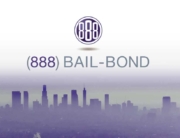
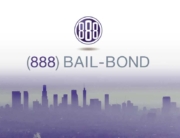
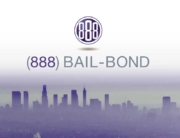


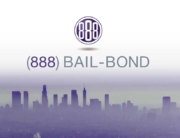
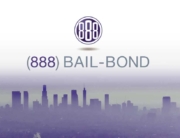
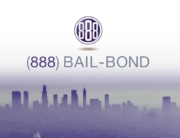
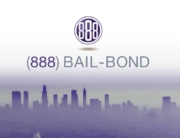
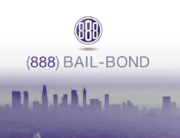




Follow Us
Facebook
Twitter
Google +1
LinkedIn
Youtube